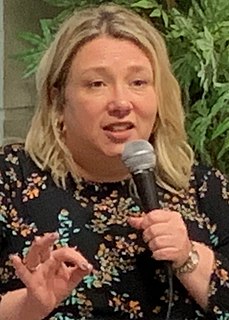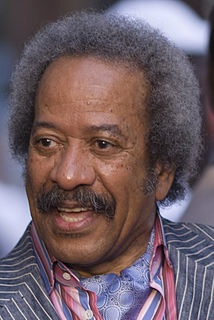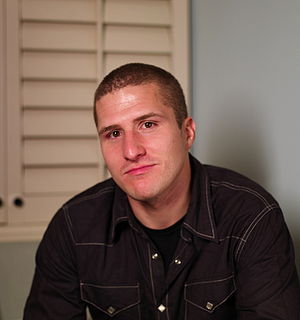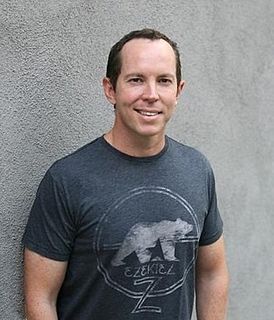A Quote by Gail Honeyman
It's helpful to get feedback on your work, and I think you learn a lot from reading other people's work and giving them feedback.
Related Quotes
I'm much more concerned about what artists think. But as you get older you tend to get much more isolated; you're not out in the bar, having long drunken arguments on the benefits of your work vs. someone else's. It's hard to know how people are looking at it, and you don't get much feedback. The written critical stuff seems to be the feedback, but that's hard to interpret.
I get hundreds of emails daily and a lot of feedback from people that are reading or have read my books. When I'm writing, or in my daily life, I just think of the work. I love to tell a story, but I might work with a story to make it the best I can without thinking of how many people will read it or if it will influence anybody.
I've learned mainly by reading myself. So I don't think I have any original ideas. Certainly, I talk about reading Graham. I've read Phil Fisher. So I've gotten a lot of my ideas from reading. You can learn a lot from other people. In fact, I think if you learn basically from other people, you don't have to get too many new ideas on your own. You can just apply the best of what you see.
Writing can be such a lonely endeavor that I do think community is also important.Meeting at cafes and exchanging work and reading to each other and giving each other little bits of encouragement and feedback and thoughts, I think that's an incredibly rich experience because what it does is it gives you a sense of community but also purpose. If I know I'm going to meet you in a cafe next Tuesday, I'm going to write something that I can hand to you. Discipline is such a challenge for so many writers and so I think that that's a key benefit of being in a group.
My writing process is very feedback based - I listen to the audience. I try to understand what's connecting, what's not connecting... and then rewrite, and rewrite, and rewrite. Chris Gethard and I have been on the road a lot together. When we get on the bus at night, we talk about the jokes that didn't work and the joke possibilities that could work. I think this is a little different from other writers.
All successful people learn that success is buried on the other side of frustration. Unfortunately, some people don't get to the other side... They allow frustration to keep them from taking the necessary actions that would support them in achieving their desire. You get through this roadblock by plowing through frustration, taking each setback as feedback you can learn from, and pushing ahead.
I think it's satisfying for people to feel that that relationship is reciprocal in some way. The truth is, you do have a relationship with your fans, and there is a feedback loop there. And while you have to be careful not to write a show just for the superfans, that kind of feedback is really valuable.






































